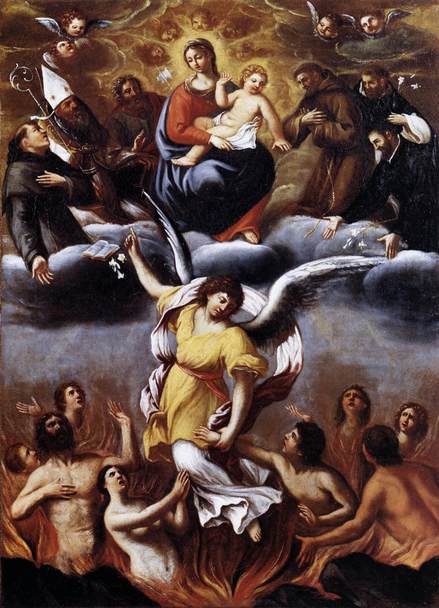 Hello Everyone: Today is All Souls Day - when we pray for the dead. Why must souls suffer before they can see the face of God? Doesn’t the Sacrament of Penance sufficiently remove the effects of sin from the soul and pay the debt required for forgiveness? The penance imposed by the priest in the Sacrament of Penance – an integral part of that Sacrament – is to make satisfaction for the debt caused by sin. However, often the priest gives a penance for the sin that is much lighter than what is required by Divine Justice. Thus, an amount to be paid still remains, and the person should either do other penances to make expiation or he will go to Purgatory. Another means the Church gives to alleviate that debt – which is extra-sacramental and presupposes the effects obtained by confession, that is, contrition – is by means of indulgences. The word indulgence comes from the Latin indulgentia, a kindness or favor. In the Old Testament it was used to express release from punishment or captivity (Is 61:1). The Church uses the word in an analogous sense, defining indulgence as a remission of the punishment due to sin, where guilt has already been forgiven. A plenary indulgence is the remission of the entire temporal punishment due to sin so that no further expiation is required in Purgatory. A partial indulgence remits only a certain portion of the penalty due to sin. These are some examples of ways to gain a plenary indulgence:
Eternal rest grant unto them, O Lord, and let perpetual light shine upon them. May they rest in peace. Amen.
0 Comments
Leave a Reply. |
AuthorBernadette Porter is a Traditional Catholic, a wife of 42 years with 6 adult home-schooled children and 6 grandchildren. A sincere devotion to Mary, the Mother of God leads me to want to share "The Church's best kept secret" - Mary! Archives
July 2024
Categories |

 RSS Feed
RSS Feed